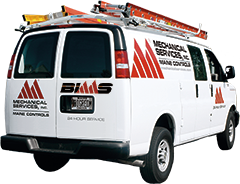Homegrown
Environmentally-Conscious
Energy Solutions
Discover the advantages of Maine’s most reliable energy sources: wind, solar, geothermal, air to air heat pumps, air to water heat pumps and more.
Wind - Wind turbines are used to supply or supplement a building’s electricity use. They can be a reliable long-term solution as a renewable energy source. Their application is very site specific because average wind speeds vary greatly by location.
Solar - Solar photovoltaic supplies electricity to a building, while solar thermal produces hot water for domestic use, pool heating, or process systems. Although solar thermal is generally more cost effective than solar produced electricity, it is usually cost prohibitive to use solar for space heating purposes, especially in retrofit applications.
Geothermal - Geothermal heat pumps typically have higher efficiencies than air-source heat pumps. This is because they draw heat from the ground or groundwater, which is at a relatively constant temperature all year round below a certain depth.
Air to Air - During the heating season, air-to-air heat pumps transfer heat from cooler outdoor air indoors and distribute it using fans. During the cooling season, the cycle works in reverse. Because they move heat rather than generate it, heat pumps can provide up to four times the amount of energy they consume. Air-to-air heat pumps are relatively easy (and inexpensive) to install and have historically been the most widely used heat pump type.
Air to Water - Air-to-water heat pumps transfer heat from cooler air and use it to produce hot water for space heating, process or domestic use. The heat source can be either outdoor air or “captured” waste heat generated inside a building as in a boiler room or data center. As a reverse cycle chiller, this technology may also produce chilled water for cooling purposes.
Water to Air - Water-to-air heat pumps transfer heat from warm or cool water and use it for space heating. The heat source can be either groundwater as in geothermal, a boiler fed heating loop, or heat recovered from a process or chiller system. If cooling is also required, the cycle may be reversible.
Water to Water - Water-to-Water heat pumps transfer heat from warm or cool water and use it to produce hot water for space heating, process or domestic use. The heat source can be either groundwater as in geothermal, a boiler fed heating loop or heat recovered from a process or chiller system. If cooling is also required, the cycle may be reversible
Biomass - Biomass boilers can be a practical retrofit for existing high temperature hot water heating systems. Biomass boilers use pellets or wood chips, a carbon neutral and low cost energy source.
Natural Gas - Natural gas reserves occur both domestically and globally in greater quantities than oil. In certain areas where it is available, natural gas can provide an affordable alternative. Because natural gas prices are regulated by the Public Utilities Commission, they tend to be more stable. In most cases, a dual fuel system can be installed to switch between oil and gas as market conditions change.
Why depend on imported energy when we have these sources? These solutions are practical and affordable. Start saving GREEN today! Email us for more information.

